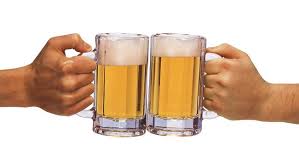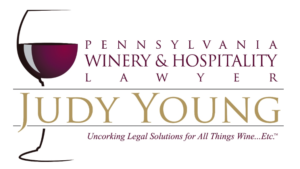Governor Wolf Orders All Law Offices To Close
/0 Comments/in Hospitality Business, New Jersey Wine Law, Pennsylvania Wine Law /by Judy YoungGovernor Wolf has ordered all non-life-sustaining businesses, including law offices, to close effective immediately. The governor’s order, remains in effect until further notice. The order allows “virtual or telework operations (e.g., work from home), so long as social distancing and other mitigation measures are followed in such operations.
We are all facing an unprecedented situation. As COVID-19 continues to spread, there’s nothing more important to us than the well-being of our clients. Pennsylvania Winery and Hospitality Lawyer has operated virtually for over a decade and we will continue to do so throughout these difficult times. Trust that you will be able to reach us so that we may continue to serve your legal, contract, or business needs that are important to your wine or hospitality business.
While these times are unprecedented and circumstances are fluid, we also know that they are temporary. We are inspired to see our people and community coming together. Please take care of yourselves, your family and the ones you love. We look forward to serving you.
Judy M. Young, Esq.
Principal, Pennsylvania Winery and Hospitality Lawyer
Here’s What’s New With Pennsylvania’s New Liquor Laws
/0 Comments/in alcohol legislation, Pennsylvania Liquor Control Board /by Judy YoungLetting Go Can Be Bittersweet
/0 Comments/in Wine News of Interest /by Judy YoungAs a graduate of Windows Wine School it was a privilege to have taken instruction under the world’s premier wine educator Kevin Zraly. And now that Windows Wine School is coming to a close its bittersweet to share Dorothy Gaiter’s article with you: Kevin Zraly Says He Has To ‘Let Go’ Of Windows All good things must come to a close in 2016 but the good news is, when one door closes another opens. We look for more goodness from the Master in the years to come.
ALCOHOL LAW CHANGES COME TO PENNSYLVANIA
/0 Comments/in alcohol legislation, Pennsylvania Liquor Code /by Judy YoungEffective August 8, 2016, Act. 39 amendments to the Pennsylvania Liquor Code signed into law by Governor Wolk become effective. The Act is aimed at increasing the availability and promotion of Pennsylvania alcohol products. The Pennslyvania Liquor Control Board has issued a SUMMARY of information relevant to Licensees. The act is aimed at creating parity between its categories of manufacturers.
Of particular interest, the Pennsylvania Liquor Control Board has created a new direct wine shipper license (DWS) wherein a wine manufacturer may ship up to 36 cases of wine to Pennsylvania residents within a calendar year for personal use regardless whether produced in Pennsylvania, another state, or country. All wine however must be transported via a Pennsylvania licensed transporter-for-hire.
The big news of course it that those entities holding a restaurant or hotel license, the new law allows for the sale of wine up to three liters per single transaction, a matter of interest to the growing number of grocery stores.
Act 39 expands the availability of special exposition permits for Pennsylvania ciders, breweries, and distilleries which where historically only available to Pennsylvania Limited Wineries.
For more on this new change in law click here: Summary of Changes In Alcohol Law in PA.
MODERNIZATION AT THE PENNSYLVANIA LIQUOR CONTROL BOARD
/0 Comments/in Pennsylvania Liquor Control Board /by Judy YoungModernization has finally come to the Pennsylvania Liquor Control Board as it unfolds its new Online Licensing Platform. The new platform is expected to permit its business partners and applicants to operate in a secure environment over the internet. For more on this new venture: click here.
HOW WILL YOUR PENNSYLVANIA WINERY OR WINE BASED BUSINESS TAKE SHAPE IN 2016?
/0 Comments/in Pennsylvania Wine Law, Winemaking Business and Law /by Judy Young Happy New Year to all. I can’t believe another year has come and gone already. For myself, as the new year turns I’m taking a moment to reflect back on how well I achieved the goals I set for myself last year and to create new ones. Hence, it’s been a good time to dust off the old business plan to reflect on progress made or the lack thereof. In other words, I’m holding myself accountable for doing what I told myself I was going to do. So far, my persistence and diligence is bearing fruit for those new goals I’ve taken on. I’m also looking to scrap those goals that aren’t working.
Happy New Year to all. I can’t believe another year has come and gone already. For myself, as the new year turns I’m taking a moment to reflect back on how well I achieved the goals I set for myself last year and to create new ones. Hence, it’s been a good time to dust off the old business plan to reflect on progress made or the lack thereof. In other words, I’m holding myself accountable for doing what I told myself I was going to do. So far, my persistence and diligence is bearing fruit for those new goals I’ve taken on. I’m also looking to scrap those goals that aren’t working.
I know some of you are contemplating taking the plunge this year to establish your own winery or wine based business. If so, this is a great time to lay your foundation towards developing a successful winery or wine and hospitality based business by creating your business plan.
Creating a business plan forces you to focus on identifying your goals and objectives as well as how to set plans on how to reach them. In other words, where do you see your business 1 year from now, 3 years from now, or even 5 years from now? Who are your customers? What specific products will you offer? Have you identified your competition? What are your start up costs and sources of funds? What is your mission? Who is your target market? How will you manage the local, state, and federal regulations governing the business of alcohol? Exactly how will your business take shape in 2016?
These are just a few questions to think about when starting your own winery, wine or hospitality based business. As the beginning of the year unfolds, use this time to build your business plan and set achievable goals. Your business plan will keep you on the right track in 2016 and the years to follow.
Does Alternative Lending For Your Pennsylvania Wine Or Hospitalty Business Sound Enticing?
/0 Comments/in Hospitality Business, Pennsylvania Wine Law, Winemaking Business and Law /by Judy YoungWe can all probably agree that building your new winery or hospitality business takes hard work, dedication, perseverance and boatload of money. Whereas the baby boomer generation typically relied on traditional forms of financing such as bank loans, savings accounts, small business administration loans and daddy, today’s millennial entrepreneurs are turning to non-traditional forms of financing and lending sources. 
Millennial hospitality and wine business entrepreneurs who have struggled to find access to capital are relying now on more organic ways to fund their wine and hospitality businesses. One such way is by pursuing alternative crowd-funding financing. Crowd-funding, also known as peer-to peer lending, is a popular and growing alternative method of raising money.
Unlike an angel investment in which one person typically takes a larger stake in a small business, crowd-funding attracts a crowd of people, each of who take a small stake in a business by contributing towards an online funding target. Its main benefit is the creation of a strong network of support for your business. Your investors often become your evangelists for your brand.
On such crowd funding source is Kickstarter (www.kickstarter.com). Typically there is no cost to launch a crowd-funding campaign. If you business is successful in its funding, Kickstarter takes a small fee plus payment processing. If your campaign fails, there are no fees.
Crowd-funding can provide a fantastic opportunity but it should not be taken lightly. You may wish to contact your lawyer or CPA for professional assistance. For more help and information on this alternative financing source, you should also consult the Small Business Administration’s (www.SBA.GOV) online course on Crowdfunding for Entrepreneurs.
Now go out there and “show me the money.”
Pennsylvania Regulators Make Way For Beer Home Delivery
/1 Comment/in alcohol legislation /by Judy YoungWhile most beer buyers have to purchase beer by the case or keg from a distributor, new changes are underway with the Pennsylvania Liquor Control Board that make way for less restrictive rules around the  selling of beer in Pennsylvania.
selling of beer in Pennsylvania.
The PLCB’s recent changes underway allow for the selling of a 12-pack of beer or less with food orders from businesses that have a “Transporter-for Hire” License. The purchase of beer must be processed in advance in the store prior to delivery. In other words, the beer has to be paid for over the phone with a credit card. Proper ID must be provided in an effort to avoid selling to minors.
This new change comes as good news to many restaurants and businesses hoping to boost their profit margins. For more, see below:
May Your Holiday Wishes Be Filled With Good Wine and Cheer!
/0 Comments/in Hospitality Business, New Jersey Wine Law, Pennsylvania Wine Law, Pennsylvania Wine Trails and Wineries /by Judy YoungHappy holidays and best wishes from the Law Offices of Judy M. Young, LLC. Its hard to believe its been almost eight years since the launch of Pennsylvania Winery and Hospitality Lawyer. Its been a real joy and a blessing to serve the needs of the Pennsylvania wine and hospitality community. As 2015 approaches, we look forward to serving your future legal needs. We hope your new year is filled with good health, happiness, and cheer.
years since the launch of Pennsylvania Winery and Hospitality Lawyer. Its been a real joy and a blessing to serve the needs of the Pennsylvania wine and hospitality community. As 2015 approaches, we look forward to serving your future legal needs. We hope your new year is filled with good health, happiness, and cheer.
recent post
Contact Judy Young
Judy Young
Attorney at Law
668 Stony Hill Road Suite 339
Yardley, Pennsylvania 19067
Phone: 215-240-6043
Fax: 215-493-4239
Or click here to go to our contact page.
